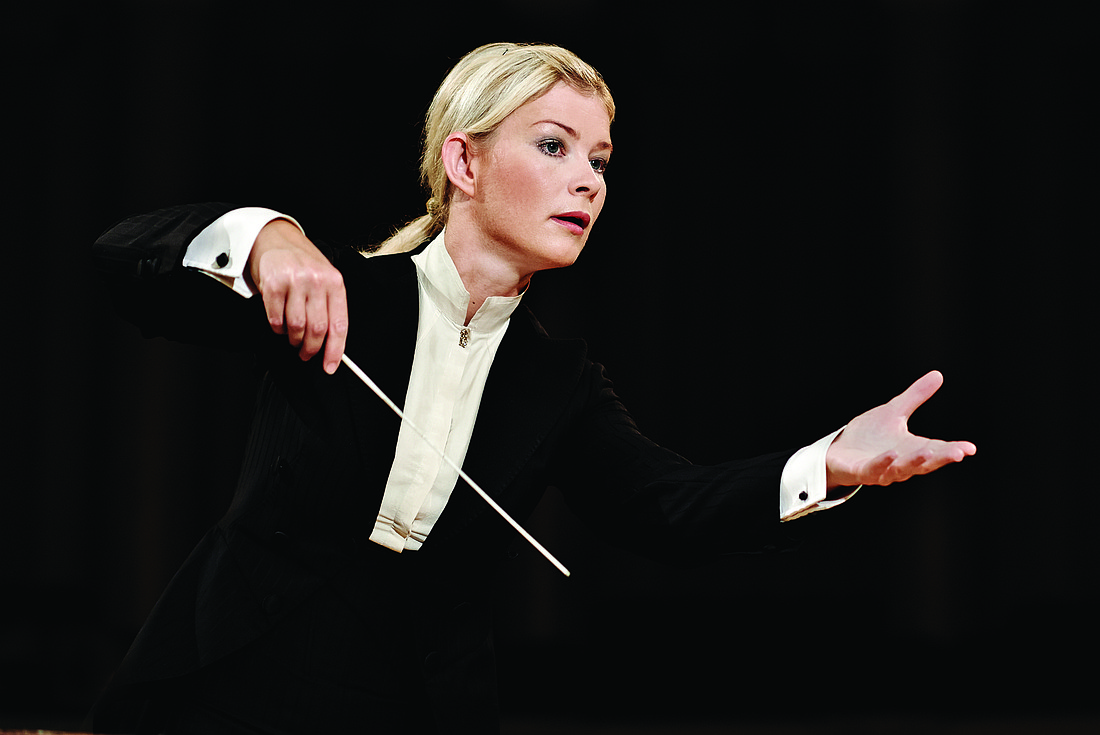- May 15, 2025
-
-
Loading

At the outset, a concert composed of two monolithic works — the Brahms Piano Concerto No. 1 and the Jean Sibelius Symphony No. 1 — seems like an exceptionally large musical meal. However, as served up by Anu Tali and the Sarasota Orchestra this past Sunday afternoon, it seemed just right.
Billed as a concert of “Firsts,” each of these works was the first mark of success for both composers, and each underwent several revisions after first performances. The Brahms concerto was severely trounced by audience and critics after its premiere, and it wasn’t until the third revision had been performed that it began to gain the prominence it has today.
Pianist Roman Rabinovitch, substituting at the last minute for an ailing Lukáš Voncdráček, gave an absolutely stunning performance of this great work. This is certainly one of the “big” concerti for any pianist, especially since the piano and orchestra are written as equal partners, with mammoth chordal sections and fleeting passagework requiring dexterous fingers. He has all this, plus the talent and ability to project the grand sweep of melody, harmony and construction that is the heart of the piece.
While this concerto is often seen as craggy, based in sadness, and a bit disjointed, Tali, Rabinovitch and the orchestra sought and found both the lyrical and inherent romanticism that is at the heart of Brahms’ music. This, together with a wonderful concept of forward motion, even in the slowest of passages, produced a performance that most of us will remember for a long time. Conductor, orchestra and soloist were completely of one mind and thought in bringing this great piece to life, and the audience was the enthusiastic recipient of this symbiotic relationship.
And just to let us know that he had energy left after the concerto, Rabinovitch surprised the audience by literally tossing off a performance of the solo piano version of Stravinsky’s “Danse Russe” from “Petrushka,” with all its parallel chords and bombast, done as if there were nothing to it. Quite a feat.
Then came the Sibelius Symphony No. 1. Again, a work that brought the composer to prominence, it was written over 1899-1900, and also underwent a lot of revision. Ryun Schienbein, vice president for artistic production and planning for the orchestra, stated it so beautifully when he said that at the time Schoenberg was leaving tonality behind and Stravinsky was using difficult intersecting rhythms and polytonality, Sibelius was developing his own style of Romanticism and harmonies. Sibelius does indeed have a musical voice of his own, for even when he writes in a major key and is more “happy or pleasant,” his music still has an aura of darkness and isolation, probably due to Finland’s geographic location. Also because of Finland’s close proximity to Russia, one can sense some influence of Tchaikovsky in this symphony. Yet all were translated and put into the musical voice of the young Sibelius, who wrote this first symphony at 33.
Tali’s Estonia is close to Finland, and with Sibelius’ music obviously embedded deep in her soul, his music is now in the soul of the Sarasota Orchestra as well. It seems odd that an orchestra on Florida’s Suncoast would really know the heart of Sibelius, but it’s true. From the opening clarinet solo of Bharat Chandra through all the woodwind, brass and string solos and ensembles, this orchestra can certainly claim to “know how it goes” when it comes to this composer.
The often piercing themes that then burst forth within the decidedly romantic heart of this composer were beautifully realized in what was indeed a special performance.
The enthusiastic audience was rewarded with a Tali bonbon at the end: a quietly beautiful and exquisite performance of “Valse Triste,” again by Sibelius, apparently the hero of the day.